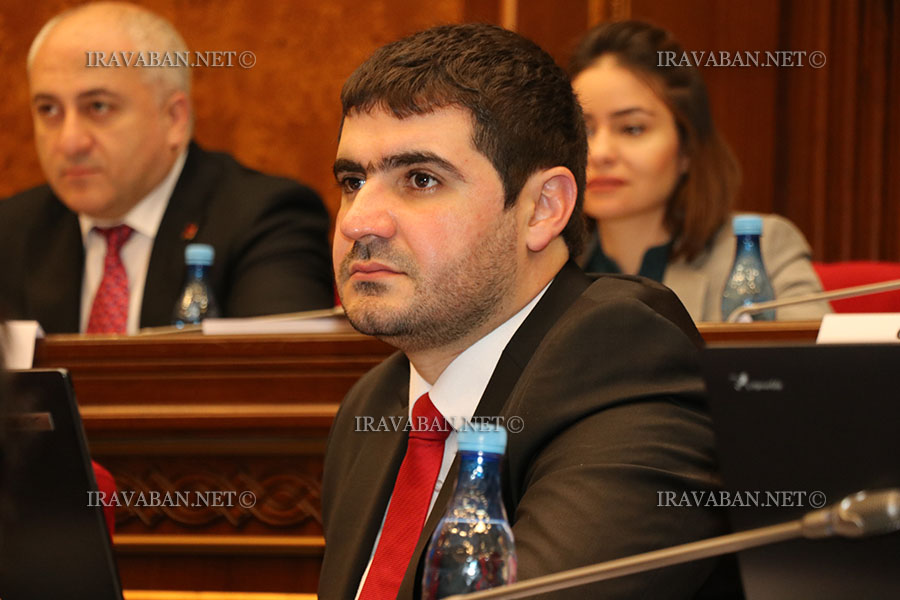The work of the Euronest Parliamentary Assembly was completed in Chisinau. Arman Yeghoyan, Deputy of the “Civil Contract” Faction of the National Assembly, reports.
“Hot debate took place over the provisions of the resolution to be adopted regarding Nagorno Karabakh and Armenian prisoners of war. The delegation of Azerbaijan demanded to reformulate the original resolution to the level of uncertainty unacceptable for us. As a result, the resolution was adopted as it was written in mid-December and presented to the Assembly.
It “calls for the full and urgent resolution of unresolved humanitarian issues such as the release of all detained Armenians, clarification of the fate of missing persons and victims of enforced disappearances during the Nagorno-Karabakh conflict, and the implementation of UNESCO’s mission to preserve cultural heritage in the region, welcomes the EU’s support for humanitarian demining efforts, emphasizes that the rights and security issues of Nagorno-Karabakh Armenians must be resolved to ensure lasting peace in the region.”
Below is my speech during one of the discussions.
“Dear colleagues, I am afraid that once again I have to bother you with the conversation about Armenia-Azerbaijan relations and now I will explain why. Many of you complain that every time you come and see the dispute between Armenians and Azerbaijanis. Our friend Rasa says, “When will the day come when all this ends?” I can answer when that day will come. When the issues that caused this controversy are either resolved or addressed.
Let me give an example: right now, these days, 33 confirmed Armenian prisoners of war (or some may say detainees or hostages), 33 RA citizens are detained in Baku and this is clearly defined in the resolutions of the European Parliament. In order to reach the day when we will sit around the same table and discuss the regulation of our relations, I suggest, the members of the European Parliament, approach your Azerbaijani colleagues here during the break and ask: “Dear colleagues, why don’t you return the 33 Armenian prisoners of war?” Please listen to their answer. Moreover, from the resolution that we will adopt tomorrow, they deleted the line by which we, the Parliamentary Assembly, will call on them to return the Armenian prisoners of war or detainees. Ask again on our vote tomorrow if this is such a big deal to people
They are talking about peace, and I have to give you information, dear European Parliament, are you aware that one of the issues on which we cannot agree is the institution of an international peace guarantor mechanism? Azerbaijan is against our proposal to establish such a mechanism. It could be any mechanism, but we suggest that it is this mechanism. As such, Azerbaijan is against the concept of an international guarantor in general, they do not want any international mechanism to monitor the implementation of the agreement. They want to keep you all out of our relationship. They want you to leave us alone so they can take revenge on us, that’s what they want. Don’t be fooled by their beautiful words. Let’s compare it with the situation when we talked about the EU observation Mission in Armenia. Why did we ask to carry out that mission? Because we needed it. Why is Azerbaijan against it? Because they do not need it, is it clear and right?
Once again, please, during the break, approach your Azeri colleagues and ask them why they oppose 100 EU civilian observers on the Armenian border, if they are not going to attack Armenia, why should they oppose the mission?
Finally, they talk about the rights of Armenians in Nagorno-Karabakh and say that Armenians will enjoy the same rights and privileges that the citizens of Azerbaijan enjoy. Excuse me, but what rights and privileges do the citizens of Azerbaijan have? Is it the right to freedom of speech, the right to elect a president, the right to assembly? Even the citizens of Azerbaijan are deprived of these rights, how can Azerbaijan guarantee it for other nationalities?
Dear colleagues, I urge you to solve the issues that cause conflicts and not just say, I wish, I dream that one day this will end. Conflicts will end if the problems are solved, not if we turn a blind eye to them.”















